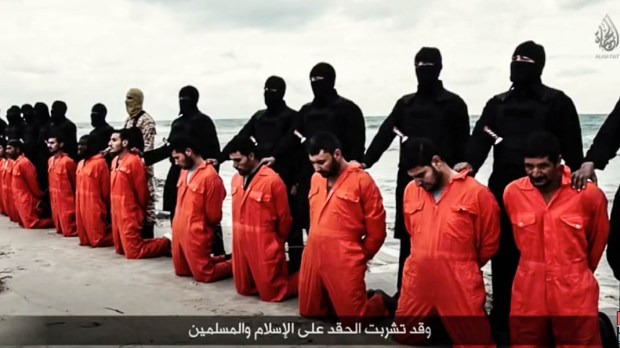Lenten Campaign 2025
This content is free of charge, as are all our articles.
Support us with a donation that is tax-deductible and enable us to continue to reach millions of readers.
Since Libyan authorities have returned the bodies of 21 Coptic Christians who were beheaded by the Islamic State group in the North African country almost three years ago, Egyptian authorities have begun conducting DNA tests on the remains to help identify them and link them to their relatives.
The bodies were found in early October, buried in a coastal area in the town of Sirte, Libya, with their heads next to them, said Fides news agency.
Egypt’s Department of Legal Medicine has invited families of the “Libyan martyrs,” as they are known, to the health facilities in Minya to undergo a DNA test that will help identify the bodies. Egyptian media reported that relatives expressed joy and hope that the process would allow the identification of the martyrs before their burial, which is expected to take place at the shrine built in their memory in the village of Samalut.
The Libyan Interior Ministry announced in early October that the bodies of 20 Copts and one Ghanaian who were beheaded by Daesh in Sirte, Libya, in January 2015, would be shipped to Egypt. The headless bodies were found with chained hands, in the orange jumpsuits and shoes the men had been wearing when the were beheaded, Coptic Solidarity reported.
On September 29, the Libyan Public Prosecutor Assistant al-Sadiq al-Sour announced the nationality of the jihadists who had carried out the beheading. Al-Sour said that the cameraman who videotaped the beheading gave the Libyan authorities details about the killings about where the victims’ bodies were buried. The cameraman said that only one victim resisted, while the others were all submissive.
A week after the jihadists released the video of the decapitation, Orthodox Coptic Patriarch Tawadros II decided to register the 21 martyrs in the Synaxarium, the book of martyrs of the Coptic Church, establishing that their memory is to be celebrated on February 15.

